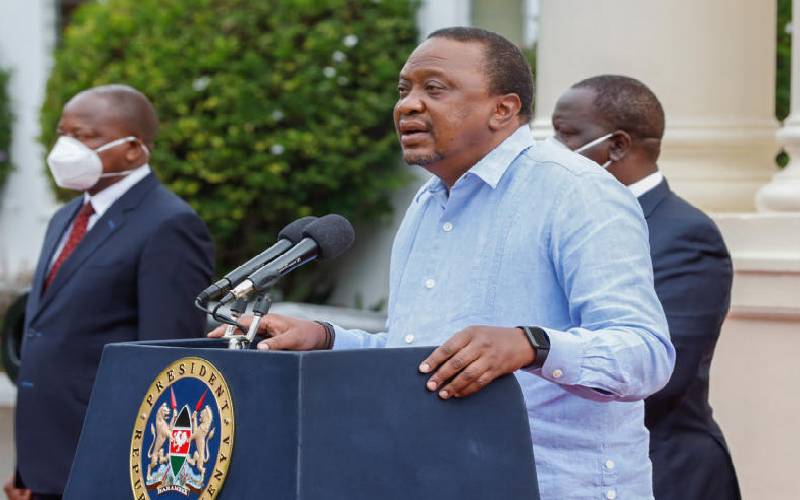×
The Standard e-Paper
Join Thousands Daily

President Uhuru Kenyatta delivers his speech on the pandemic from State House, Nairobi, yesterday. [PSCU]
Kenyans have been spared a lockdown as President Uhuru Kenyatta extended the current Containment measures with minimal adjustments amid increasing Covid-19 cases. Curfew